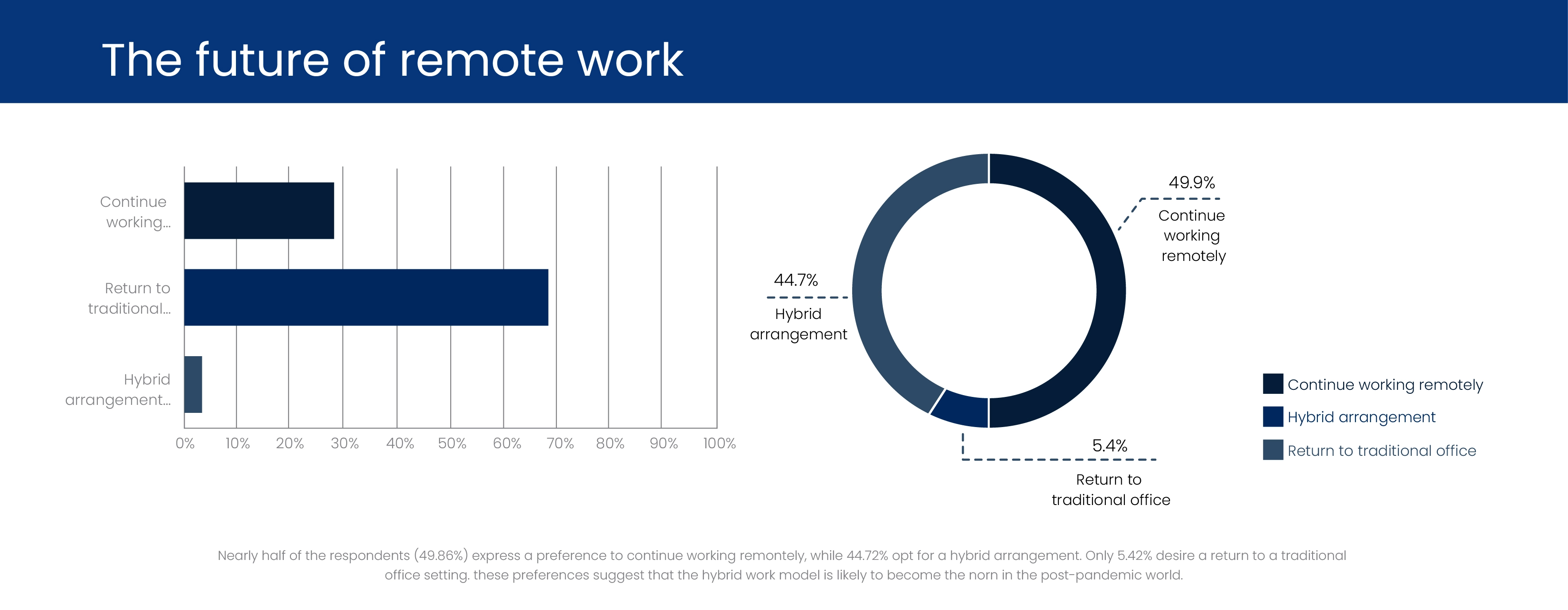- Home
- Blog Details

The COVID-19 pandemic has catalyzed a profound shift in work culture, accelerating the adoption of remote work across industries. As businesses adapt to this new paradigm, the need for accessing top-tier talent without geographical constraints has become paramount. In this context, leveraging the expertise of remote staffing agencies emerges as a strategic solution.
This article explores the advantages of collaborating with remote staffing agencies in the era of the remote work revolution.
Benefits of Choosing Remote Staffing Agencies
Access to a Global Talent Pool
One of the primary advantages of partnering with remote staffing agencies is the access to a vast and diverse talent pool. Like the benefits derived from a global exchange of ideas in research, organizations can tap into a worldwide network of professionals with specialized skills and experience. This global perspective enriches the workforce and fosters innovative problem-solving.
Streamlined Recruitment and Onboarding
Recruiting and onboarding remote employees poses unique challenges. Remote staffing agencies excel in streamlining these processes, saving organizations valuable time and resources. They conduct thorough vetting to ensure candidates are well-suited for the remote work environment. This mirrors meticulous data collection and analysis in research, guaranteeing the highest standards of quality.
Flexibility and Scalability
Remote work necessitates flexibility, especially concerning the rapid scaling of teams. Remote staffing agencies offer dynamic solutions, enabling businesses to adapt promptly to changing needs. Whether it's project-based work or long-term commitments, these agencies can provide the right talent for the job, reflecting the adaptability required in scientific research.
Impact of Remote Work Revolution on Recruitment
The remote work revolution has brought about several significant impacts on the recruitment landscape.
Labor Costs Reduced by 50%
The remote work revolution has a profound impact on cost savings, notably in labor expenses, with the potential for up to 50% reduction through the utilization of G3 Worldwide Remote Assistants. This approach emphasizes the importance of data-driven insights in cost reduction strategies, enabling businesses to identify areas for improvement, streamline processes, and optimize resource allocation.
By embracing remote work arrangements, companies can enhance overall efficiency, refine HR policies, and uplift employee morale, all of which contribute to significant savings. Remote work fosters a more flexible and autonomous work environment, leading to higher productivity levels and ultimately lowering labor costs. Additionally, adapting HR policies to accommodate remote work practices enhances employee satisfaction and reduces turnover, further contributing to cost savings.
Increased Demand for Digital Skills
The demand for digital skills has surged with the rise of remote work. Employees now need proficiency in using technology for communication, collaboration, and task performance. Recruiters should prioritize candidates with strong digital skills and conduct assessments to evaluate their proficiency.
Shift Towards Virtual Interviews
Virtual interviews have become the norm in remote work setups, replacing traditional in-person interviews. Recruiters must be adept at conducting effective virtual interviews, utilizing high-quality video conferencing tools and providing clear instructions to candidates.
Emphasis on Remote Work Competencies
Remote work has underscored the importance of competencies such as self-motivation, time management, and communication skills. Recruiters should assess candidates for these remote work competencies during the interview process using behavioral questions or situational interviews.

Need for Effective Onboarding
Effective onboarding has become more critical in remote work scenarios, where new hires may not have the opportunity for in-person interactions. Recruiters should collaborate with HR teams to develop robust onboarding processes, including clear materials, mentorship programs, and virtual orientation sessions.
Legal and Compliance Considerations
Remote work has raised legal and compliance considerations, particularly regarding labor laws and regulations in different regions and countries. Recruiters should work closely with legal and HR teams to ensure compliance, including proper classification of employees and adherence to local employment laws.
What type of roles can be filled through remote staffing?
Remote staffing has revolutionized the way businesses operate by enabling them to hire talent from across the globe without the constraints of geographical boundaries. This approach has opened up a wide array of roles that can be filled remotely, offering flexibility for both employers and employees. Here are various types of roles that can be effectively filled through remote staffing:
1. Administrative Support: Administrative tasks such as data entry, scheduling, email management, and customer support can easily be handled remotely. Virtual assistants can provide administrative support from anywhere with an internet connection, offering flexibility in scheduling and workload management.
2. Content Creation and Writing: Content creation roles including copywriting, content writing, blogging, and editing are well-suited for remote work. Writers can collaborate with clients and team members virtually, producing high-quality content from the comfort of their own space.
3. Graphic Design and Multimedia Production: Graphic designers, animators, and multimedia producers can efficiently work remotely using various design software and communication tools. They can collaborate with clients and stakeholders to create visually appealing graphics, videos, and animations.
4. Software Development and IT Support: Many IT roles such as software development, web development, and IT support can be performed remotely. Developers can write code, troubleshoot issues, and collaborate with team members using remote collaboration tools and version control systems.
5. Marketing and Digital Advertising: Remote staff can handle various aspects of marketing and digital advertising, including social media management, SEO optimization, PPC advertising, and analytics. Marketers can work closely with clients to develop and implement effective marketing strategies.
6. Sales and Customer Relationship Management: Sales professionals can manage client relationships, conduct sales calls, and generate leads remotely. Customer relationship management tools and virtual communication platforms enable remote sales teams to collaborate effectively and achieve sales targets.
7. Project Management and Coordination: Project managers can oversee projects, allocate resources, and track progress remotely. Project management software and communication tools facilitate seamless collaboration among team members, regardless of their location.
8. Human Resources and Talent Acquisition: HR professionals can handle various HR functions remotely, including recruitment, onboarding, payroll processing, and employee relations. Remote HR teams can leverage technology to streamline processes and ensure compliance with HR policies and regulations.
9. Finance and Accounting: Finance and accounting roles such as bookkeeping, financial analysis, and invoicing can be performed remotely using accounting software and cloud-based financial systems. Remote finance teams can efficiently manage financial operations and provide timely insights to stakeholders.
10. Education and Training: Remote staffing allows for the delivery of online education and training programs across various subjects and industries. Educators and trainers can conduct virtual classes, develop course materials, and provide support to students remotely.
How does remote staffing agencies work?
Remote staffing agencies play a crucial role in connecting businesses with remote workers who possess the skills and expertise needed to fulfill various roles. The process by which these agencies operate typically involves several key steps:
Understanding Client Requirements: The first step for a remote staffing agency is to understand the specific needs and requirements of their clients. This involves gaining insight into the type of roles to be filled, the skills and qualifications required, as well as any other preferences or criteria set by the client company.
Sourcing Talent: Once the client requirements are clear, the remote staffing agency begins the process of sourcing suitable candidates. This may involve searching through their existing pool of talent, reaching out to their network of professionals, advertising job openings on relevant platforms, or utilizing advanced recruitment technologies to identify potential candidates.
Screening and Selection: After identifying potential candidates, the remote staffing agency conducts a thorough screening process to assess their qualifications, skills, experience, and suitability for the role. This may involve reviewing resumes, conducting interviews, skills assessments, and checking references to ensure that only the most qualified candidates are presented to the client.
Matching Candidates with Clients: Once suitable candidates have been identified and screened, the remote staffing agency matches them with client companies based on their specific requirements and preferences. This involves presenting the candidates to the client along with relevant information such as their skills, experience, availability, and any other pertinent details.
Facilitating Interviews and Onboarding: Remote staffing agencies often play a key role in facilitating the interview process between the client and the candidates. They may coordinate scheduling, provide logistical support, and assist with communication between both parties. Once a candidate has been selected, the agency may also assist with the onboarding process, ensuring a smooth transition for the new hire.
Managing Contracts and Payments: In many cases, remote staffing agencies handle the administrative aspects of hiring remote workers on behalf of their clients. This includes managing contracts, negotiating terms and conditions, handling payroll and invoicing, and ensuring compliance with relevant employment regulations.
Providing Ongoing Support: Remote staffing agencies typically provide ongoing support to clients and candidates throughout the engagement. This may involve addressing any issues or concerns that arise, facilitating communication between the client and the remote worker, and offering guidance or assistance as needed to ensure a successful working relationship.
Let G3 Worldwide Help You Build Your Remote Team
G3 Worldwide stands as a premier remote staffing agency in Orlando, Florida, offering extensive expertise in building offshore teams for businesses of all sizes. With a proven track record of assisting companies, we specialize in outsourcing non-core business functions, enabling our clients to concentrate on their core objectives. Our global proficiency ensures that you receive top-notch remote staffing solutions tailored to your specific needs. By partnering with G3 Worldwide, a premier staffing agency near me, you gain access to a pool of skilled professionals ready to support your business growth while minimizing operational overheads. Let us help you streamline your operations and achieve greater efficiency by building your remote team today.
"Book an appointment now to secure your free consultation!"
©Copyright 2023, G3 Worldwide - All Rights Reserved.
Leave a Reply